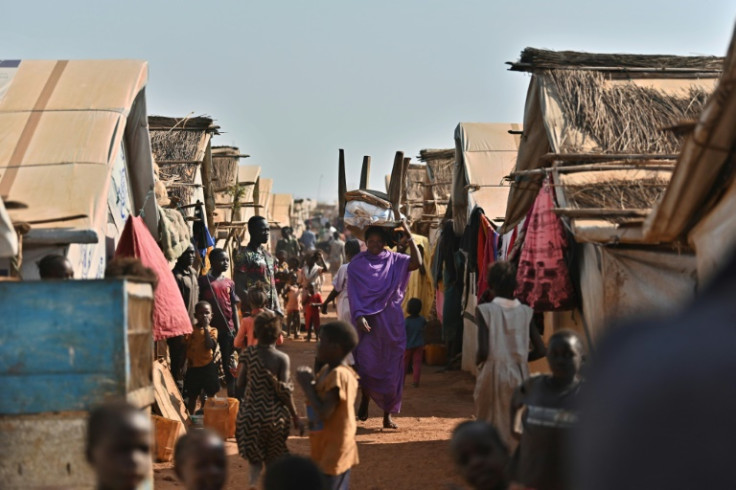Nearly 8 Million People Are Starving in South Sudan as War Intensifies
Severe food insecurity and the spread of preventable mosquito-borne diseases in South Sudan continue to intensify.

Since the conflict between Sudan's army and the RSF intensified across the border between South Sudan and Sudan in April 2023, those who have been displaced by the fighting are struggling with extreme food insecurity.
Now 20 years after the conflict commenced, in 2023 more than 3.7 million people have been internally displaced. The UNHCR notes that the overall majority of displaced persons are living in camps in the three-state area, of Darfur.
In recent months, almost 300,000 people have arrived in South Sudan – most of whom have returned to the country after fleeing their homes in mid-April.
It has been found that one in five children in South Sudan are malnourished due to the fact that 90 per cent of families in the country are victims of levels of food insecurity.
According to the World Food Programme (WFP), the unprecedented flooding and severe drought have made food production almost impossible.
The number of people, more than 7.7 million, who are experiencing severe levels of hunger in the country, marks the worst starvation crisis in South Sudan since the height of the civil war.
Mary-Ellen McGroarty, the WFP Country Director in South Sudan, told reporters: "We are seeing families leave one disaster for another as they flee danger in Sudan only to find despair in South Sudan."
With the rainy season making the flooding even worse in some regions, the pile-up of disease is also beginning to spread across the country.
Speaking of the crowded borders that are preventing a fast delivery of humanitarian aid, McGroarty said: "The humanitarian situation for returnees is unacceptable and WFP is struggling to meet the mounting humanitarian needs at the border."
McGroaty also mentioned that the WFP is also struggling to meet the needs of the millions of people who are desperate for food and lifesaving nutrition.
❗️As the conflict in Sudan rages on, nearly 300,000 people have returned to South Sudan to find appalling conditions. No food, no water, no shelter.
— MSF International (@MSF) October 3, 2023
To make things worse, they also face measles, malaria and malnutrition... 🧵 pic.twitter.com/POFj38WHnM
With complete honesty, she added: "We simply do not have the resources to provide life-saving assistance to those who need it most."
To ensure that they can urgently assist with the starvation crisis over the coming months, the WFP has called for an additional $567 million, equal to £468 million, in funding.
So far, the organisation has only been able to reach less than half, 40 per cent, of those witnessing severe food insecurity. But still, due to a lack of funding and resources, the group of displaced people in need have only received half rations.
Speaking of the relentless impact of the conflict on Sunanese people in the south of the border, Liesbeth Albrecht, who works for the World Health Organisation (WHO) as an Incident Manager for the Horn of Africa, said: "South Sudan is a country where you see the overlap and compounding impact of conflict, climate crisis, hunger crisis, and disease outbreaks that have been going on for several years."
Emphasising the record-breaking levels of starvation in South Sudan, Albrecht also added: "The numbers of children with severe malnutrition needing medical intervention have been higher this year than at any point in the last four years."
With El Nino, the detrimental climate pattern that causes weather extremes, set to hit the region in the coming months, the humanitarian crisis in South Sudan is expected to worsen even more.
Regarding the spread of mosquito-borne diseases like malaria and dengue, Albrecht noted that the hospitals in South Sudan, which are already understaffed, are going to be overwhelmed with more patients.
After visiting malaria victims in a hospital ward, Albrecht called for more assistance with: "I quote figures. I give you percentages, but behind those figures, there are just faces. I am standing there as a bystander and watching this child die of hunger and of preventable diseases."
© Copyright IBTimes 2025. All rights reserved.





















